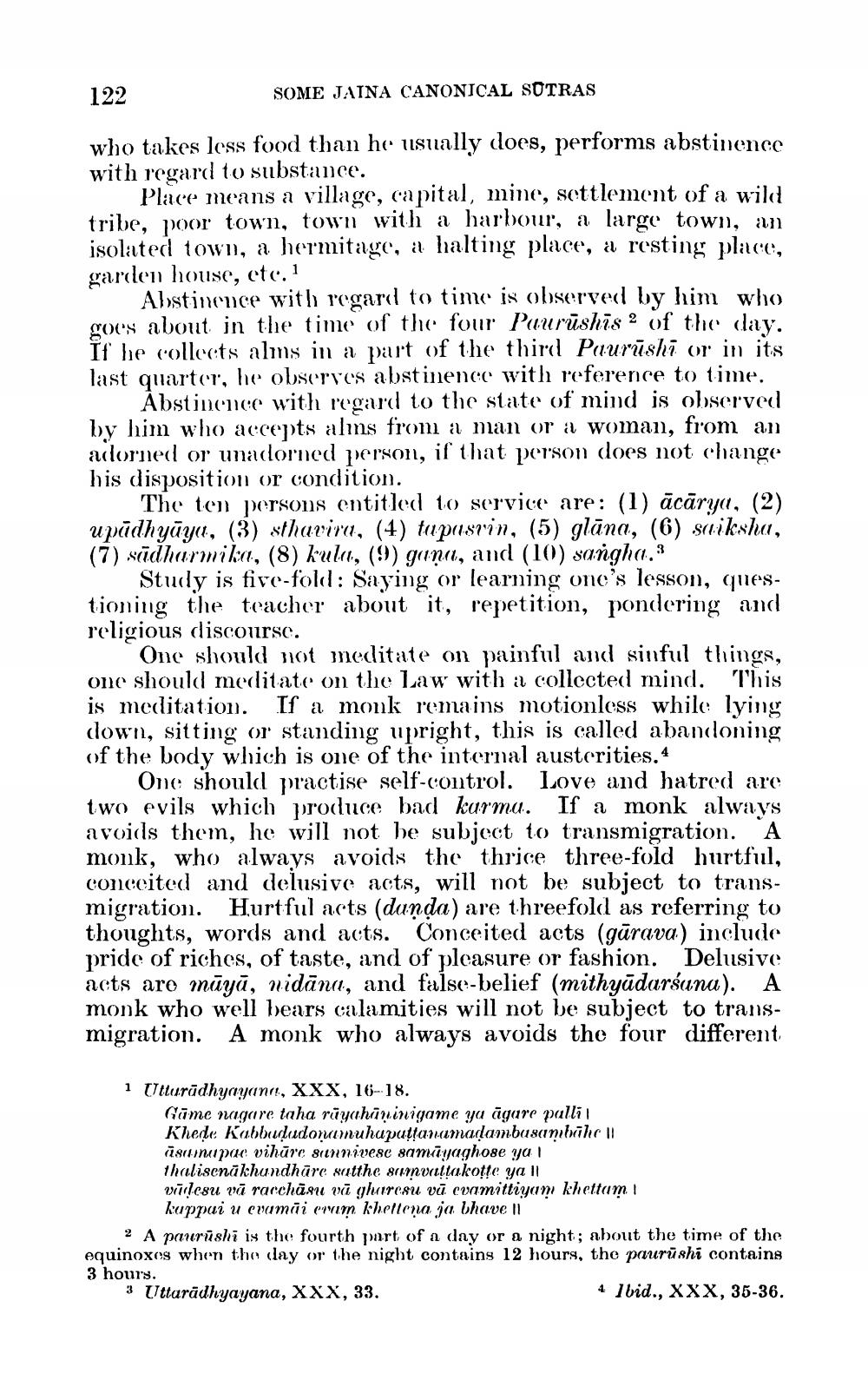________________
122
SOME JAINA CANONICAL SUTRAS
who takes less food than he usually does, performs abstinence with regard to substance.
Place means a village, capital, mine, settlement of a wild tribe, poor town, town with a harbour, a large town, an isolated town, a hermitage, a halting place, a resting place, garden house, etc. 1
Abstinence with regard to time is observed by him who goes about in the time of the four Paurushis2 of the day. If he collects alms in a part of the third Paurushi or in its last quarter, he observes abstinence with reference to time.
Abstinence with regard to the state of mind is observed by him who accepts alms from a man or a woman, from an adorned or unadorned person, if that person does not change his disposition or condition.
The ten persons entitled to service are: (1) ācārya, (2) upādhyāya, (3) sthavira, (4) tapasvin, (5) glāna, (6) sarksha, (7) sadharmika, (8) kula, (9) gana, and (10) sangha.3
Study is five-fold: Saying or learning one's lesson, questioning the teacher about it, repetition, pondering and religious discourse.
One should not meditate on painful and sinful things, one should meditate on the Law with a collected mind. This is meditation. If a monk remains motionless while lying down, sitting or standing upright, this is called abandoning of the body which is one of the internal austerities.1
One should practise self-control. Love and hatred are two evils which produce bad karma. If a monk always avoids them, he will not be subject to transmigration. A monk, who always avoids the thrice three-fold hurtful, conceited and delusive acts, will not be subject to transmigration. Hurtful acts (danda) are threefold as referring to thoughts, words and acts. Conceited acts (gūrava) include pride of riches, of taste, and of pleasure or fashion. Delusive acts are māyā, nidāna, and false-belief (mithyādarśana). A monk who well bears calamities will not be subject to transmigration. A monk who always avoids the four different
1 Uttaradhyayana, XXX, 16-18.
Game nagare taha rayahaninigame ya ägare palli Khede Kabbadadonamuhapaṭṭanamaḍambasambāhe ||| āsamapac vihāre sannivese samāyaghose ya thalisenakhandhare satthe samvattakotte ya ||
vilesu và raccharu và ghresu và committiyan Rhettum | kappai u cvamai evam khettena ja bhave
2 A paurushi is the fourth part of a day or a night; about the time of the equinoxes when the day or the night contains 12 hours, the paurushi contains 3 hours.
3 Uttaradhyayana, XXX, 33.
4 Ibid., XXX, 35-36.




